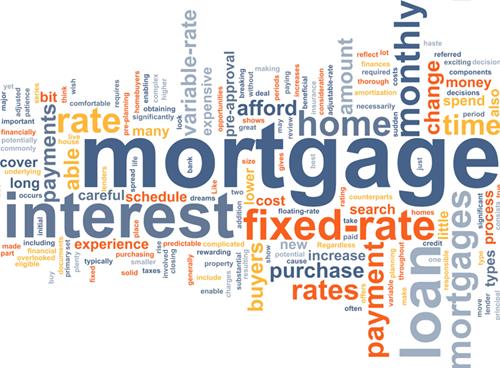5/6/2019
| SHARE
Posted in Canadian Economy and Interest Rates by Vanguard Realty | Back to Main Blog Page

Only the most dedicated variable-rate mortgage fans are staying loyal today.
Everyone else is moving over to fixed-rate five-year mortgages. Mortgage agent David Larock says 95 per cent of clients are choosing a fixed rate, compared with a 50-50 split between fixed and variable last summer. Mortgage broker Sandra Epstein says she’s doing almost exclusively fixed rate, while broker Mike Bricknell said fixed rate accounts for 90 per cent of his business right now.
“Everything is kind of funnelling into the five-year fixed-rate mortgage,” Mr. Larock said.
Variable-rate mortgages have for decades been the savvy home owner’s go-to choice. You typically pay a lower interest rate for a variable rate compared with a fixed rate, and your borrowing costs adjust lower or higher when the Bank of Canada changes its trendsetting overnight rate. When interest rates plunged after the last recession, variable-rate mortgages were the place to be.
The Bank of Canada began nudging rates higher in summer 2017, but variable-rate mortgages held their own with borrowers. The 2018 Annual State of the Residential Mortgage Market in Canada study by Mortgage Professionals Canada shows that 30 per cent of mortgages purchased in 2018 had a variable rate and that 27 per cent of all mortgages were in this category.
For the moment, homeowners are largely avoiding variable-rate mortgages. Driving this trend is our slow-growth economy and its effect on interest rates. We now have short-, medium- and long-term interest rates that are very close to each other. Normally, rates step higher as you go from short- to medium- and long-term.
Variable-rate mortgages are influenced by short-term rates, while fixed-rate mortgages take their cue from longer-term rates. If both these rates are similar, the cost advantage of variable-rate mortgages fades.
Variable-rate mortgages were going for 2.95 per cent at a couple of national mortgage brokerage firms at midweek, while five-year fixed-rate mortgages were 3.09 per cent and 3.14 per cent. “When the difference between variable and fixed rate is this narrow, I just don’t think the risk-reward trade-off is compelling,” Mr. Larock said.
The usual gap between variable and fixed rates saves you money on interest, and it provides you with a margin of safety. The CMP study found that five-year variable-rate mortgages were on average 0.55 of a percentage point cheaper than five-year fixed-rate mortgages last year and 0.7 of a point cheaper in early 2019. With this differential on rates, the variable-rate mortgage remains cheaper than a fixed rate even if the Bank of Canada’s overnight rate rises a couple of times.
One reason to still consider variable-rate mortgages is that you believe the economy’s weak spell in early 2019 signals a slump that will require the Bank of Canada to cut rates. Mr. Larock said it’s possible this happens and that variable-rate mortgage holders end up saving money. His complaint about variable-rate mortgages is that there’s not currently enough reward to offset the risk of higher rates down the line.
Source: Globe and Mail
Fixed Rate Mortgages, Home Buyers, Interest Rates, Mortgage Consumers, Mortgage Market, Mortgage Rates, Mortgage Rates Canada, Mortgage Refinancing, Mortgage Trends, Mortgages & Real Estate

